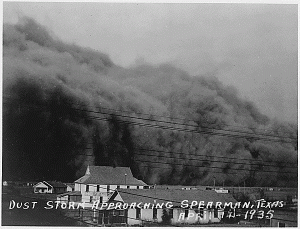 There is a fantastic article in the Wall Street Journal, comparing our current economic situation to past downturns. The article details several major economic statistics for three time periods, the current situation, the recession of ’81-’82 and the Great Depression.
There is a fantastic article in the Wall Street Journal, comparing our current economic situation to past downturns. The article details several major economic statistics for three time periods, the current situation, the recession of ’81-’82 and the Great Depression.
The situation today has a lot in common with the situation in 1981, although that recession was a little worse than we are seeing now. In comparison, the Great Depression is in a category by itself.
One of the statistics from the article that stands out is in regard to unemployment. The WSJ writes:
“In the last year, the U.S. economy shed 3.4 million jobs. That’s a grim statistic for sure, but represents just 2.2% of the labor force. From November 1981 to October 1982, 2.4 million jobs were lost — fewer in number than today, but the labor force was smaller. So 1981-82 job losses totaled 2.2% of the labor force, the same as now.
Job losses in the Great Depression were of an entirely different magnitude. In 1930, the economy shed 4.8% of the labor force. In 1931, 6.5%. And then in 1932, another 7.1%. Jobs were being lost at double or triple the rate of 2008-09 or 1981-82.”
Our current unemployment would have to triple to approach the worst of the depression. Last month, we saw a number of positive economic numbers. I don’t think we’ve turned the corner yet, but we’re not in the death spiral of the early 1930’s either.
It’s important to keep some perspective on the job market when all the news is terrible. If you are out of work and can’t find a job, it can feel like there is no hope. Finding a job is tougher today than it was a few years ago – there’s no doubt about that. It is not impossible, though.
 Confidence is a major factor in a job search. A lack energy and enthusiasm will hurt the impression given in an interview. It is important to talk about your past successes and demonstrate pride in your accomplishments. Without energy, enthusiasm and pride, you’re much less likely to succeed. Self-confidence is often the most difficult aspect of a search to handle. Losing a job can cause a complete lack of confidence, or worse, mild to severe depression. Focus on your strengths and past accomplishments. If you cannot restore your confidence and enthusiasm, seek professional help.
Confidence is a major factor in a job search. A lack energy and enthusiasm will hurt the impression given in an interview. It is important to talk about your past successes and demonstrate pride in your accomplishments. Without energy, enthusiasm and pride, you’re much less likely to succeed. Self-confidence is often the most difficult aspect of a search to handle. Losing a job can cause a complete lack of confidence, or worse, mild to severe depression. Focus on your strengths and past accomplishments. If you cannot restore your confidence and enthusiasm, seek professional help.
Remember, no matter how bleak the outlook appears, there are still opportunities. In the late 1920’s and early 1930’s, there were a lot of people that started businesses and began hiring as they grew. These individuals believed strongly that they could succeed no matter what the economic climate held. Many failed, but some succeeded. Below are a few examples of the companies that got their start and fought through the Great Depression successfully:
- 1929 United Technologies (39th on Fortune 500 List, $54Bil in revenues)
- 1925 Caterpillar (50th on Fortune 500 List, $45Bil in revenues)
- 1928 Motorola (65th on the Fortune 500 List, $36Bil in revenues)
- 1927 Northrup Grumman (76th on the Fortune 500 List, $32Bil in revenues)
- 1931 Tyson Foods (88th on the Fortune 500 List, $26Bil in revenues)
- 1930 Publix Super Markets (107th on the Fortune 500 List, $23Bil in revenues)
- 1926 UAL (124th on the Fortune 500 List, $20Bil in revenues)
- 1930 Fortune Magazine (Publisher of the Fortune 500 List)




